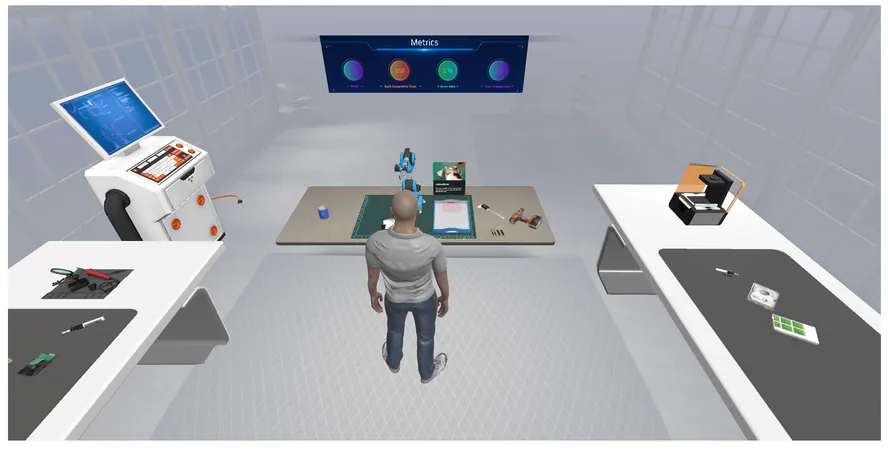
Revolutionizing Worker Training: The Power of Virtual Reality in Robotics
2025-05-28
Author: John Tan
Transforming the Recycling Industry with Robotics
As the recycling industry embraces automation, the integration of robots into the workplace is becoming increasingly commonplace. Yet, training workers to collaborate effectively with these machines poses significant challenges—until now!
Introducing VR Co-Lab: A Game-Changer for Training
Researchers at the University of Georgia have developed an innovative virtual reality platform called VR Co-Lab, designed to streamline the training process for handling robots. This cutting-edge technology enables workers to learn the nuances of robotic collaboration in a safe, controlled environment.
Why Disassembly is So Complex
One of the most challenging tasks in recycling is disassembly—especially vital for extracting valuable materials from end-of-life electronics. Unlike assembly, which follows a predictable sequence, disassembly is often intricate and unpredictable. "Standard assembly procedures don’t simply reverse for disassembly," explains Beiwen Li, the study's lead author and an associate professor at UGA's College of Engineering.
Hands-On Training Without the Risks
In the VR Co-Lab, trainees strap on headsets and find themselves in a realistic virtual workspace, equipped with the necessary tools and aided by a robot. Participants engage in hands-on tasks, like unscrewing parts or delicately manipulating small components, while a robotic arm handles larger items.
The VR system offers real-time feedback on session duration and error rates, allowing trainees to refine their skills efficiently. Li argues, "This virtual training is far more effective than pouring over pages of manual instructions!"
Enhancing Safety and Performance Through Body Tracking
Safety is paramount in workplaces involving robots, and VR Co-Lab incorporates advanced body tracking technology. Utilizing the Meta Quest Pro, the system monitors users’ upper body movements, allowing it to predict and adapt the robot’s actions to prevent dangerous collisions.
It also educates users on potential hazards, ensuring they learn how to navigate their workspace safely and efficiently.
The Future is Now: Embracing Robots in Recycling
As the recycling industry looks ahead, the reliance on robotics is set to expand. Li and his team are eager to conduct extensive user testing to fine-tune the VR Co-Lab for various skill levels and beyond just hard disk disassembly. "With robots automating complex tasks, they can help alleviate labor shortages in the recycling sector," Li notes.
By making it easier for human operators and robots to work effectively together, VR Co-Lab is paving the way for a safer, more efficient future in the recycling industry.


 Brasil (PT)
Brasil (PT)
 Canada (EN)
Canada (EN)
 Chile (ES)
Chile (ES)
 Česko (CS)
Česko (CS)
 대한민국 (KO)
대한민국 (KO)
 España (ES)
España (ES)
 France (FR)
France (FR)
 Hong Kong (EN)
Hong Kong (EN)
 Italia (IT)
Italia (IT)
 日本 (JA)
日本 (JA)
 Magyarország (HU)
Magyarország (HU)
 Norge (NO)
Norge (NO)
 Polska (PL)
Polska (PL)
 Schweiz (DE)
Schweiz (DE)
 Singapore (EN)
Singapore (EN)
 Sverige (SV)
Sverige (SV)
 Suomi (FI)
Suomi (FI)
 Türkiye (TR)
Türkiye (TR)
 الإمارات العربية المتحدة (AR)
الإمارات العربية المتحدة (AR)